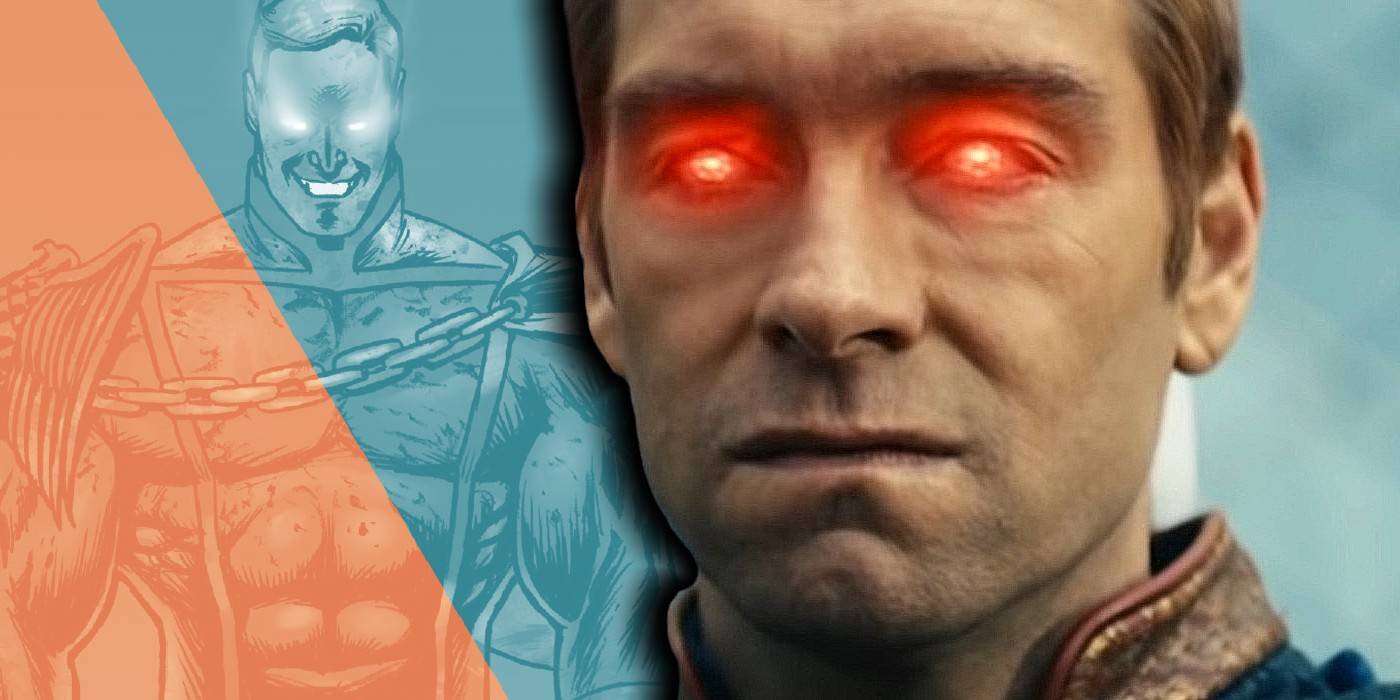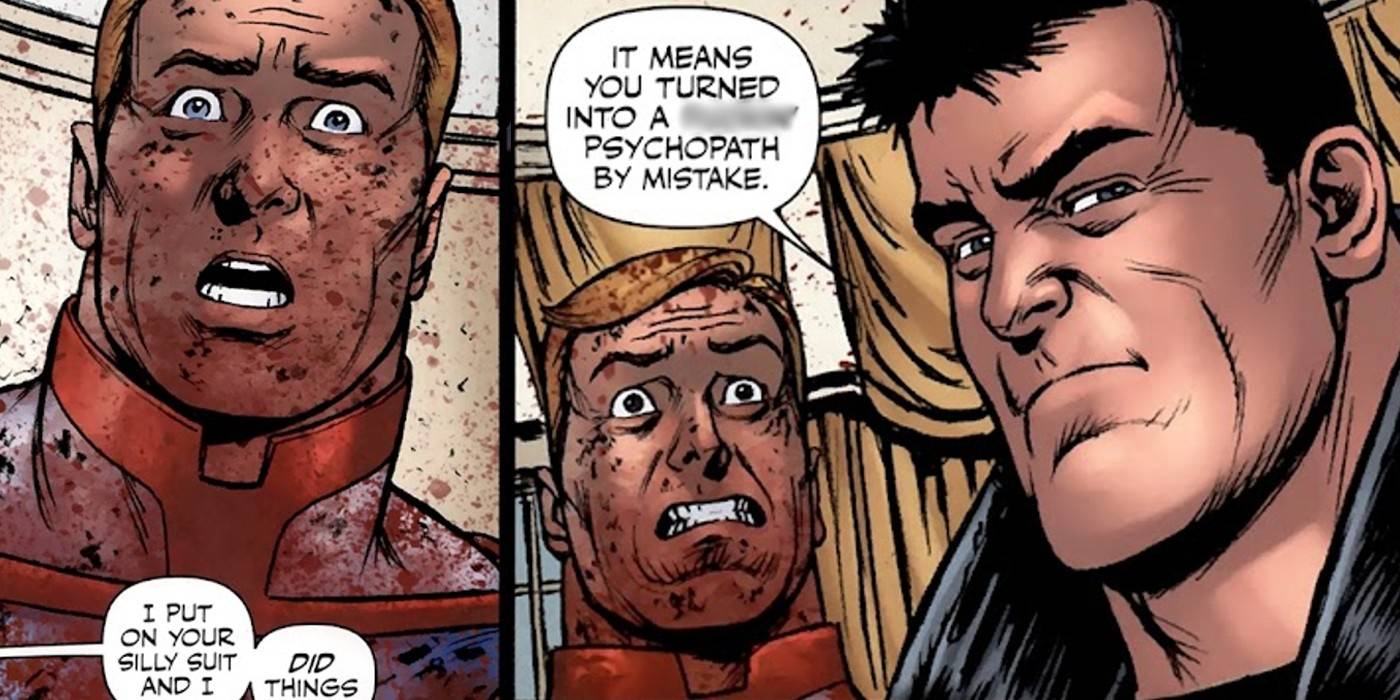While Homelander is set up throughout The Boys as the series’ big bad, his eventual death perfectly flips this concept by robbing him of his dignity and relevance. An incredibly powerful parody of DC’s Superman, Homelander is a brutal bully who ultimately decides to stage a coup on the United States, murdering the president and countless people in a short-sighted grab for power.
Ultimately, Homelander is killed by Black Noir, who is revealed to be a clone of the powerful Supe, tasked with assassinating him should he ever decide to break from the Vought-America corporation’s interests. It’s Black Noir who ends up being the series’ biggest superhuman threat, and Homelander is killed off-panel in a way that not only acts as a thrilling twist, but perfectly undermines the way the character presents himself throughout the story.
In The Boys #65 (from Garth Ennis, Russ Brain, John McCrea, and Keith Burns), Homelander learns the truth. Not only has his ‘friend’ always wanted to kill him, but Black Noir actually dressed as Homelander in order to frame him for brutal crimes and force Vought to call for his execution. Homelander’s own crimes only happened because he believed he’d already done such terrible things, prompting Butcher to hit him with the definitive put-down, “It means you turned into a ****** psychopath by mistake.” Homelander begins the issue sitting in the Oval Office, feeling unbeatable, and ends with a profanity-laden tantrum, squaring off against an enemy who brutally destroys him. It’s a genius move because it takes a character who’d love to be thought of as a supreme evil and kills him off-panel in a fight against a bigger threat, moments after definitively proving he’s never understood what’s actually going on behind the scenes.
For most of The Boys, Homelander is held up as an unkillable terror – someone who can’t be brought down by normal means, and who plunges the country into chaos on a whim. It’s exactly how he presents himself, and yet ultimately it’s the lie of someone who has the maturity – as his creator described him to Newsarama – “of a fourteen year old.” Homelander’s coup is deeply unsuccessful, lasting less than a day and ending with him murdered by Vought’s secret weapon and his superhero ‘army’ mowed down by the military. Homelander isn’t actually an unfeeling killer, but rather someone playing the part who is constantly questioning his own actions.
Ultimately, Homelander isn’t even in the top three of The Boys’ villains, ranking below Black Noir, Vought executive James Stillwell, and Billy Butcher himself. While he sets himself up as a terrifying threat, his death in The Boys pulls the rug from under his and readers’ feet by showing he’s anything but. Often in pop culture, even the most repulsive villains are given cool or iconic deaths that only serve to validate their importance. The Boys doesn’t give Homelander that kind of ending, revealing he’s been playing someone else’s game all along, and killing him off in a fight that only serves to establish his killer as a far more disturbing and significant villain.


